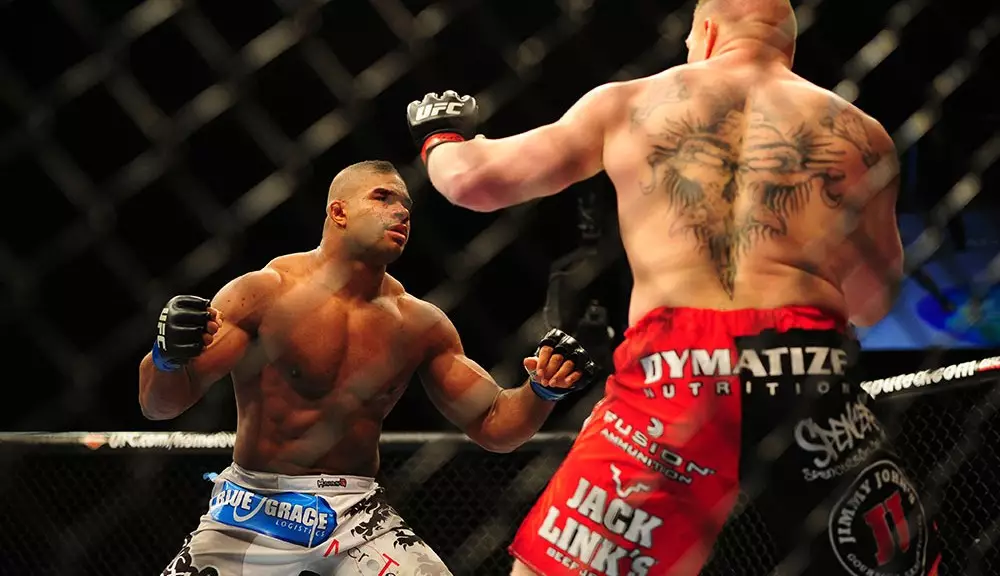In the world of mixed martial arts, certain matches become etched in memory—not merely for the fighters involved but for the momentous implications surrounding them. One such encounter took place on December 30, 2011, at the prestigious MGM Grand Garden Arena in Las Vegas, where former UFC champion Brock Lesnar faced off against the formidable Alistair Overeem at UFC 141. Standing at 6-foot-3 and weighing in at 265 pounds, Lesnar was no stranger to dominance inside the cage. Meanwhile, Overeem, at 6-foot-5 and 256 pounds, was celebrated for his striking power and versatile fighting style. Expectations were high; fans anticipated a fierce confrontation between these heavyweight giants.
From the very start of the bout, it became evident that Overeem was not only eager but strategically astute. He quickly claimed the center of the octagon, a critical psychological and physical advantage, forcing Lesnar to respond to his movements. Overeem’s approach illustrated his experience—the anticipation of Lesnar’s attempts to grapple sourced mainly from his wrestling background. Despite Lesnar’s initial move to grab a single leg, it was clear that Overeem’s striking prowess was overwhelming, prompting the former champion to release the hold. This crucial moment set the tone for the fight, revealing Lesnar’s hesitancy amidst Overeem’s relentless forward pressure.
As the fight progressed, Overeem unleashed a series of aggressive strikes against Lesnar. The most notable of these were his vicious knees directed to Lesnar’s midsection. Each connection served as a reminder of Overeem’s ability to dominate with mixed martial arts techniques. The blows mitigated Lesnar’s attempts to regain control, showcasing Overeem’s prowess in reading the fight’s dynamics. While Lesnar had returned to competition post-diverticulitis, a condition that weakened him significantly, it became apparent that he was not fully recovered in this high-stakes environment.
The bout concluded dramatically within just 2 minutes and 26 seconds, with Overeem demonstrating the very essence of combat sports. A flurry of strikes culminated in Lesnar being taken down, signaling the end of his journey as an elite fighter—at least for the immediate future. This fight marked not only the expiration of Lesnar’s formidable UFC tenure but also a pivotal point for Overeem, propelling him into title contention. Lesnar’s subsequent retirement from the sport for nearly five years illuminated the impact of this loss; it forced him to transition back into professional wrestling with WWE, signaling a significant shift in his career trajectory.
Looking back on UFC 141 highlights how pivotal this match was within the context of MMA history. For Overeem, it was a career-defining victory that showcased his skill set against one of the sport’s biggest names. Conversely, for Brock Lesnar, it became a stark reminder of the unforgiving nature of combat sports and the physical toll it could exert, leaving both fighters’ careers forever altered. As fans reflect on this event, it remains a striking example of how quickly fortunes can shift, especially in the heavyweight division, where power and strategy collide in the octagon.

